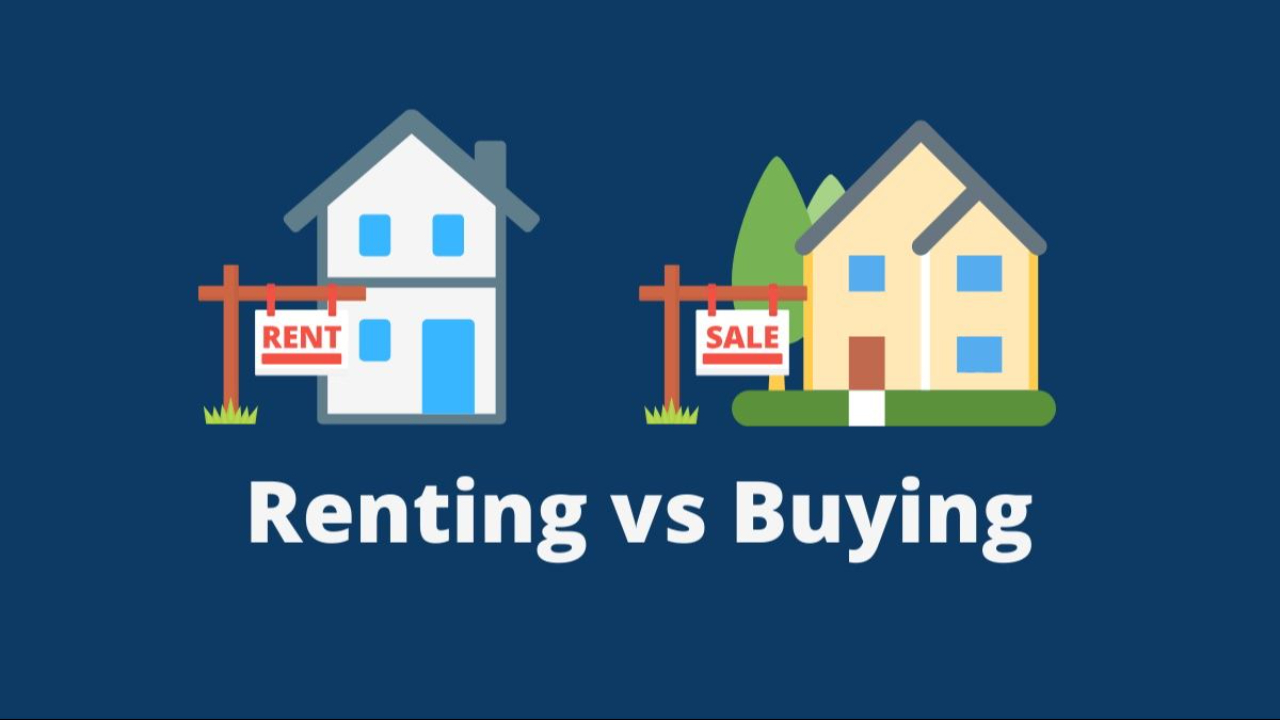To Rent or to Buy,
That is The Question
Many don’t even consider buying given steep housing prices.
But let’s say you’ve saved enough - should you buy?
The conventional wisdom would say “go for it”.
Conventional Wisdom may be wrong.
Let’s start basic: Do you know how much goes into buying a home?
Since most can’t pay cash for a home, we finance them in the form of a mortgage (normally provided by a bank, credit union, etc.).
Now, in order to get a mortgage, banks require you to provide a down payment (between 3.5% and 20% of the home value). That goes to your equity so you aren’t losing that, but you still need the cash.
Along with the down payment, there are also realtor fees, loan origination fees, inspections, and all kinds of other expenses you’ve never heard of. All of those fees can add up to 5-8% of the home’s price.
“Well now that I did my upfront cost, I’m building equity in my home with every mortgage payment!”
Kind of…
You build equity, but way slower than you’d expect.
Most would think that if I had a $3,000 mortgage payment and a 6% interest rate, each payment would put $2,830 to my equity and $170 to interest.
Wrong.
Mortgages are set so the bulk of your monthly payments go to interest for the first half of your loan.
For the $3,000, $2,500 of the $3,000 is going to Interest on the loan. Not Your Equity.
This is super important to understand. People think they are building a ton of equity when they actually aren’t.
Banks front-load the interest because the average person moves after 7-10 years.
After 10 years of paying your 30-year mortgage, you’ve only paid off 16% of your loan (even though you’re 33% through it). The bulk of those monthly payments have actually been going to the bank in the form of interest.
To top it all off, you are also now responsible for taxes and upkeep which combined add an ongoing 1-4% of the home value per year in expenses.
You starting to see why buying a home isn’t the “obvious” financial perk society pretends it to be?
Most think “I bought a house for $400k, it’s now worth $450k - it was a great financial decision”. They completely ignore all of the other costs from above.
So, how do you decide which route is the best financial decision?
NerdWallet has a great tool for you.
Their Rent vs. Buy Calculator factors in everything you could think of.
It takes into account home value appreciation, taxes, maintenance, and compares it to the cost of rent, renter’s insurance, opportunity cost of a down payment, etc. to give you a side-by-side comparison on which option might be best.
Since home ownership has so many upfront costs and front-loaded interest, you generally need to stay in a home for 7-12 years for it to be a better financial decision than renting a comparable home.
Spend some time in the calculator and run some of your own numbers.
Where you live is more than just a financial decision.
Though we proudly rented our home for nearly 3 years, our landlord’s selling required us to move.
You are not firmly planted in a rental. As we thought about the future and the potential of children, the idea of having to move with young kids sounded less than ideal.
We also loved the idea of being able to do what we wanted with our space. Painting, landscaping, etc. are harder to do in a rental. It’s harder to make it feel yours.
How much are each of those benefits worth to you?
The rental calculator is fun because it can show you “hey renting is cheaper by $30,000 over 10 years compared to buying”.
Using that number, you can decide whether the “annual premium” of $3,000 is worth the ability to add personal touches to your house and avoid moving.
Major decisions are never just about numbers.
But having the financial box checked can sure make that decision easier 🙂


